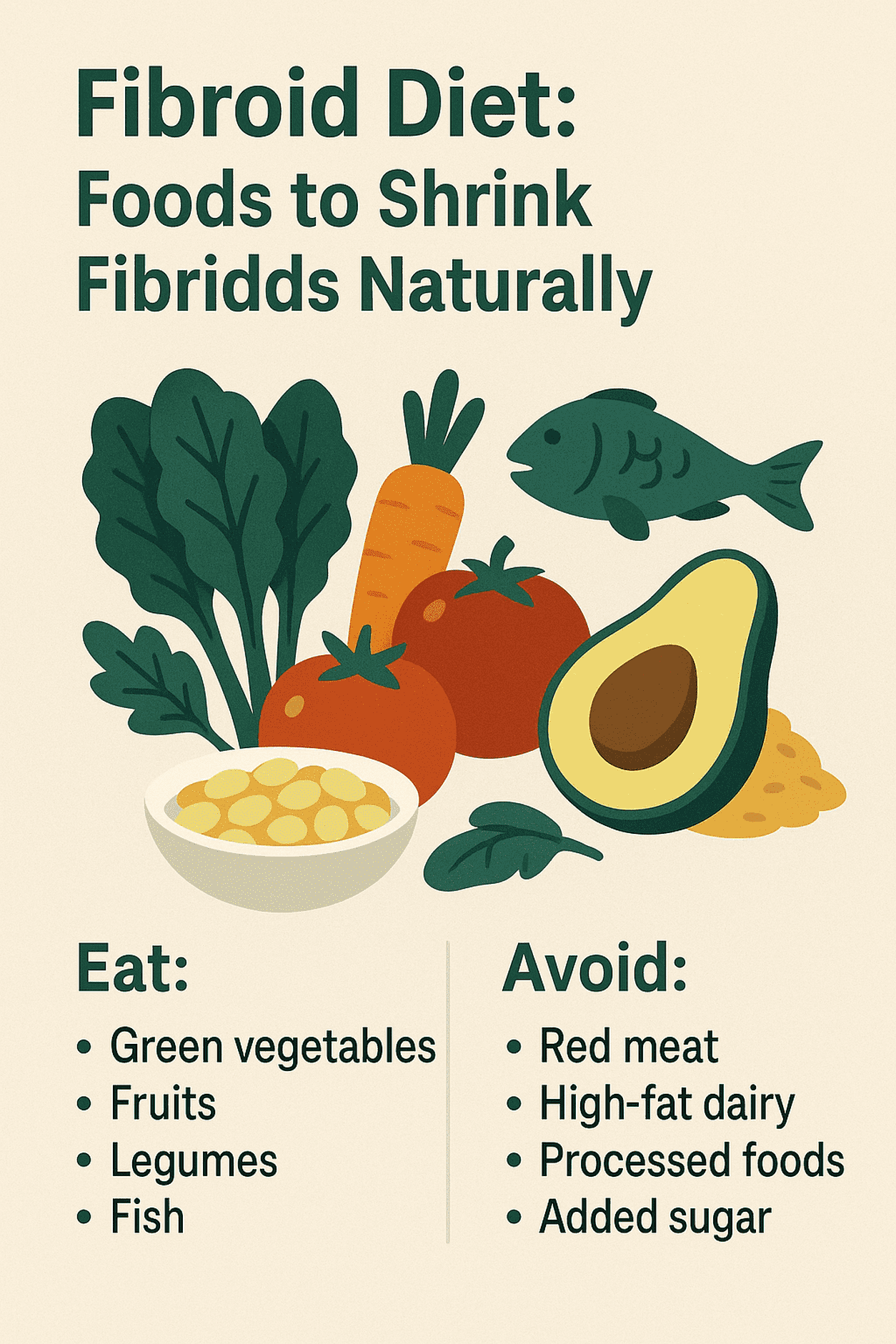
Are you struggling with uterine fibroids and searching for natural ways to manage your symptoms? You’re not alone. Many women face the challenges of fibroids, but the right diet can make a significant difference. In this guide, we’ll reveal the top 10 fibroid-friendly superfoods every woman should know. By incorporating these foods into your daily routine, you can support your health, potentially shrink fibroids, and feel your best. Let’s dive in!
Uterine fibroids are non-cancerous growths that develop in or on the uterus. They affect up to 70% of women by the age of 50. Common symptoms include heavy menstrual bleeding, pelvic pain, abdominal bloating, and pressure in the lower abdomen. While the exact cause is still unknown, hormonal imbalances—particularly excess estrogen—play a major role in their development and growth.
Diet plays an important role in managing fibroid symptoms and controlling their growth. A healthy, balanced diet helps regulate hormone levels and reduce inflammation—two key factors in fibroid management.
Limit or avoid: Processed foods, red meat, fried items, and excess sugar.
Include more: Fresh fruits, leafy greens, whole grains, legumes, and nutrient-rich plant-based foods.
Following a fibroid-friendly diet not only supports hormonal balance but also improves overall reproductive and metabolic health.
Incorporating these top 10 fibroid-friendly superfoods into your daily routine can support your health and help manage fibroid symptoms. Remember, every woman’s body is unique, so listen to your body and consult with a healthcare provider for personalized advice. Ready to take control of your health? Start adding these superfoods to your meals today!
According to Dr. Elizabeth Stewart, a leading gynecologist, “A diet rich in fruits, vegetables, and whole grains can help manage fibroid symptoms.”
Scientific evidence also supports this. A 2013 study published in the American Journal of Clinical Nutrition reported that women who regularly consumed more green vegetables had a significantly lower risk of developing uterine fibroids. This highlights the important role of dietary choices in reducing risk factors and managing fibroid-related symptoms.
1: What foods should I avoid if I have fibroids?
Limit red meat, processed foods, high-fat dairy, and sugary drinks, as these may worsen fibroid symptoms.
2: Can diet alone shrink fibroids?
While diet can help manage symptoms and support hormone balance, it may not eliminate fibroids entirely. Consult your doctor for a comprehensive treatment plan.
3: Are there any supplements that help with fibroids?
Some studies suggest vitamin D, green tea extract, and omega-3 supplements may be beneficial, but always consult a healthcare professional before starting any supplement.